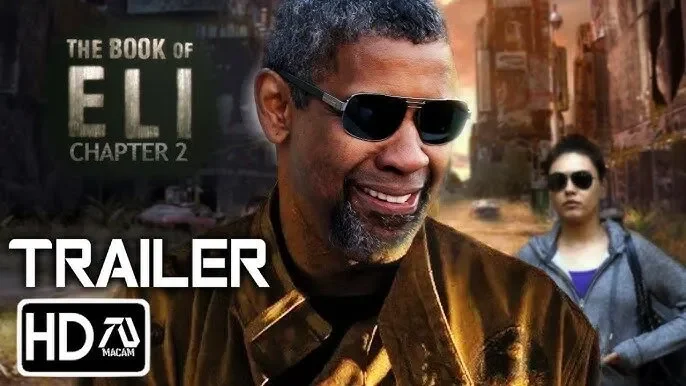
The story picks up several years after the events of the original, where Eli’s journey had already cemented him as a legendary figure. Here, we witness the ripple effects of his sacrifice and the enduring power of the sacred text he protected. Civilization is slowly beginning to rebuild, but with hope comes new dangers—emerging factions who seek to exploit knowledge and faith as tools of control. Washington commands the screen as an older, battle-worn Eli, whose silence speaks louder than words. His character embodies resilience and purpose, yet there is a vulnerability in his eyes that reveals the heavy cost of his mission. Alongside him, a younger generation of survivors enters the frame, eager to learn from him but also challenging his unwavering beliefs, making for fascinating intergenerational conflict.

The action sequences are visceral yet purposeful, never falling into mindless spectacle. Each fight feels like a test of not only survival but also moral conviction. The cinematography shines here—dust storms, collapsing ruins, and fiery skirmishes are shot with a painterly eye, capturing both the beauty and brutality of this harsh new world. One particularly memorable set piece involves a nighttime ambush on a desolate highway, where light and shadow dance across the screen to amplify suspense. Denzel Washington’s physicality remains extraordinary; every movement is deliberate, every strike a reflection of both skill and conviction. Yet, beyond the physical, the film never forgets its spiritual backbone—reminding us that true strength comes from within, from principles, and from the courage to uphold them even when the world burns.

What truly elevates The Book of Eli (2025) is its emotional weight. At its core, the film is about legacy and the power of belief—not just religious belief, but belief in the possibility of a better world. The supporting cast enriches the story beautifully, with a standout performance from a young actress who portrays a survivor torn between vengeance and faith, mirroring Eli’s own struggles from the past. Their dynamic brings both tenderness and tension, grounding the narrative in human emotion amid the chaos of survival. The screenplay balances philosophical dialogue with moments of quiet reflection, allowing the audience to breathe and reflect alongside the characters. It is in these still moments that the film’s heart beats strongest, leaving us to ponder the cost of hope in a world ravaged by despair.

In conclusion, The Book of Eli (2025) is not just a worthy sequel—it is a triumph of storytelling, anchored by Denzel Washington’s commanding presence and enriched by its exploration of timeless themes. It offers pulse-pounding action, breathtaking visuals, and a narrative that resonates long after the credits roll. More than a tale of survival, it is a meditation on the enduring strength of belief and the eternal struggle between light and darkness within humanity. For longtime fans and newcomers alike, this film is an unforgettable journey—one that challenges, inspires, and ultimately reaffirms why Eli’s story was always destined to continue.
